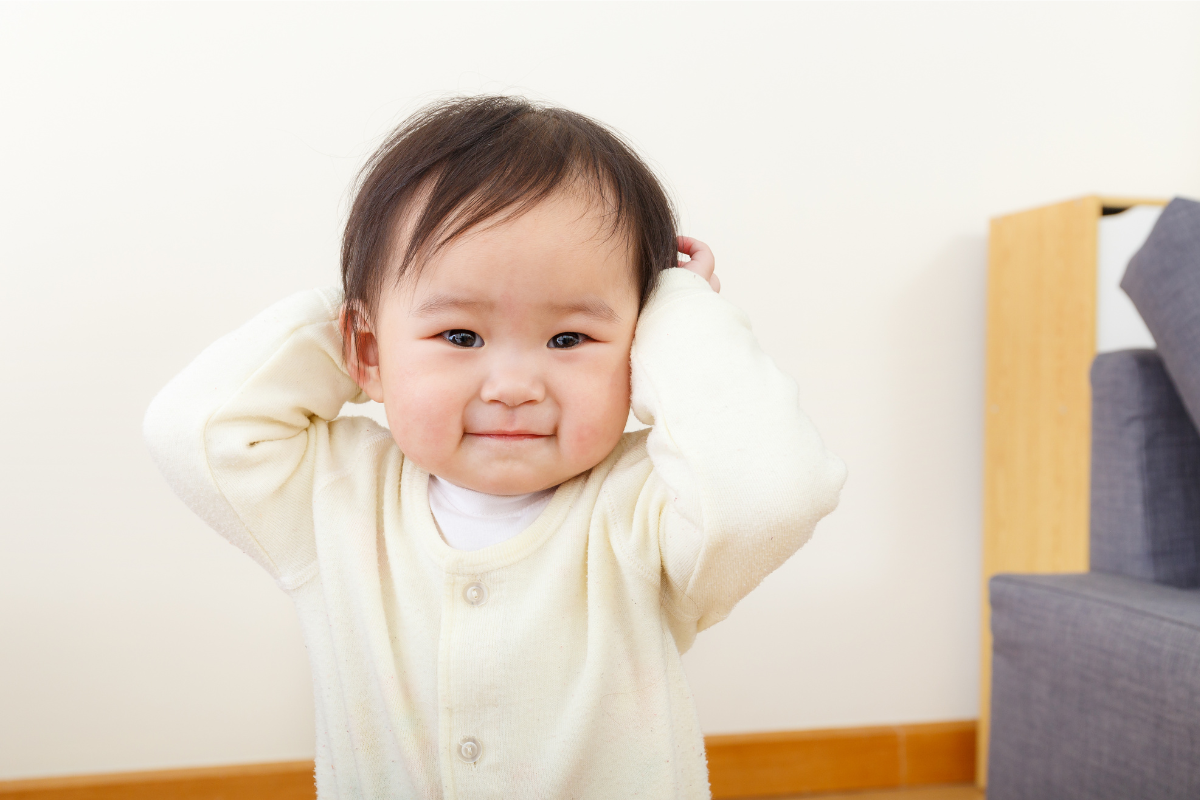Jews have a long and fascinating history in east Asian countries, particularly China, where the Jewish community in Kaifeng dates back to at least 1163. There has been a Jewish presence in Japan since the 1700s, with small Jewish communities established in Yokohama and Nagasaki in the 1800s. During the Holocaust, some Jewish refugees found a safe haven in both China and Japan. Other east Asian countries such as Vietnam, Singapore and Thailand also have Jewish communities that date back to the 18th and 19th centuries.
In the present day, these communities across Asia continue to exist and even grow — places such as Hong Kong have increased their Jewish population in recent decades. Multicultural families in the U.S. have also contributed to a rise in Asian and Jewish children being born stateside.
For families looking to find Jewish names that can also function in east Asian languages and cultures, it can certainly be a challenge for numerous reasons. Jewish languages and dialects such as Hebrew, Yiddish, Ladino and Judeo-Arabic aren’t linguistically related to languages like Korean or Mongolian, so there isn’t a whole lot of overlap when it comes to picking a beautiful baby name. Since some east Asian languages are tonal, this can also provide some potential challenges in finding a name that operates phonetically as both a Hebrew name and a name in Chinese, for instance.
As a result, many families who are looking for names that work well in terms of pronunciation between, say, Vietnamese and Hebrew will potentially use a name that doesn’t necessarily have meaning in both languages, but at least can be pronounced without major issues in both languages. That’s a perfectly fine solution! Other families might choose to use a name in an east Asian language for everyday use and then give their baby a Hebrew name equivalent with the same meaning, such as Haru in Japanese and Aviva in Hebrew (“springtime”).
In this list, here are some ideas for names that have a degree of overlap in terms of meanings or spellings between Jewish languages and east Asian languages, or potential significance in regards to history. (Keeping in mind again that due to tonal as well as script-related differences, it’s often hard to find a “perfect” match.)
Boys’ Names
Aran: A biblical figure from the book of Genesis. “Mountaineer” in Hebrew (often written Haran which is closer to the original Hebrew), “dawn” in Thai (also spelled Arun).
Asa: The third king of the kingdom of Judah. “Healer” in Hebrew, “morning” in Japanese.
Barak: “Lightning” in Hebrew, the name of a famous historic Khan of Mongolia.
Dan: Can have varied meanings based on pronunciation, such as “red” or “only” in Chinese, “tree” or “stage/level” in Japanese, “one” or “stairs” in Korean. It means “judgment” in Hebrew.
Emon: “Gate guard” in Japanese, similar sound to the Hebrew name “Amon” (one who educates).
Setsuzo: After Setsuzo Kotsuji, who helped Jewish refugees escape the Nazis during World War II and later converted to Judaism.
Tamir: “Tall,” in Hebrew, “strength” in Mongolian.
Tom: “Innocence” in Hebrew. Thom in Vietnamese has various meanings including “fragrant” and “kiss.”
Yoshi: Can be a nickname for the Hebrew name Yehoshua, “God saves,” or potentially for the Japanese name Yoshitaro, which has a variety of meanings including “justice” and “big son.”
Girls’ Names
Aya: “Buzzard” in Hebrew, varied meanings in Japanese including “colorful” and “truth.”
Dara: “Star” in Thai, “dar” in Hebrew is “mother of pearl.”
Hana: “Flower” in Japanese, “gracious” in Hebrew.
Naomi: “Pleasant” in Hebrew, various meanings in Japanese including “honest,” “beauty” and “direct.”
Neri: “My candle” in Hebrew, similar to the Khmer name Neary, meaning “gentle girl.”
Maya: Short for Maayan which means “spring/brook” in Hebrew, varied meanings in Japanese and can also be a nickname for Mayako.
Mika: “Beautiful fragrance” in Japanese, a derivative of Michal in Hebrew.
Miya: “Palace/shrine” in Japanese, a derivative of Miriam in Hebrew.
Reina: “Pure/clean” in Yiddish, several meanings in Japanese including “wise.”
Rina: “Joyful song” in Hebrew, multiple meanings in Japanese, including “white jasmine” and “village.”
Suri: “Sun” in Thai, “princess” in Yiddish.
Gender Neutral Names
Ari: “Generous,” in Thai, lion in Hebrew.
Ran: “Joyful” in Hebrew as a boy’s name, and “orchid” in Japanese as a girl’s name.
Sarit: A male name in Thai meaning “creating, completing” and a female name in Hebrew meaning “princess.”








